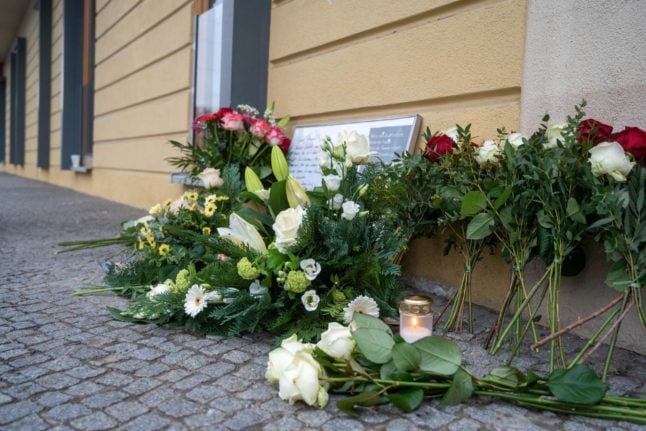The slain victims, two women and two men, were stabbed with a knife late Wednesday at the facility in the city of Potsdam, the capital of the eastern state of Brandenburg, the daily Bild reported.
Those killed are believed to be patients at the care clinic, local newspaper Potsdamer Neueste Nachrichten reported.
Police said earlier the dead were subjected to “intense, extreme violence”, but did not give any details around the circumstances of the killings.
A 51-year-old female staff member has been arrested on “strong suspicion” of carrying out the assault, police said, while acknowledging that any motive was still undetermined.
State prosecutors said they were seeking an arrest warrant on charges of manslaughter against the woman.
The exact circumstances and the motive behind the killings remain unclear.
A spokeswoman for the state prosecutors said that the killings did not bear the “characteristics of murder”, and also that the suspect would not be admitted to psychiatric care.
State police were called to the clinic at around 9 pm Wednesday, according to reports, with the victims later discovered in their rooms.
Specialised teams were dispatched overnight to collect evidence from the crime scene.
“It’s terrible news. I am shocked,” Brandenburg state premier Dietmar Woidke said Thursday, according to government spokesman Florian Engels.
“My thoughts go out to the victims and my sympathy to the relatives.”
Speaking on radio station BB Radio, he called it a horrific and terrible act. “It is a difficult day for Brandenburg,” he added.
Brandenburg state police were called to the Oberlin Clinic at around 9 pm local time on Wednesday, according to reports, with the victims later discovered in their rooms.
Police officers in protective suits could be seen taking photos during the night through the windows of the new building.
‘We are stunned’
The clinic, run by the Lutheran Church’s social welfare service, specialises in helping those with physical and mental disabilities, including the blind, deaf and severely autistic patients.
It offers live-in care as well as schools and workshops.
Around 65 people live at the facility, which employs more than 80 people.
Potsdam mayor Mike Schubert called the crime an “incomprehensible act”.
Local residents began leaving bouquets of flowers, cards and lighted candles in honour of the dead at the clinic, as police maintained a large presence outside.
A ceremony in memory of the victims is planned for Thursday evening, said Matthias Fichtmueller, the clinic’s theological director.
“We are stunned,” he said. “When the case has been wrapped up in the criminal justice system, we will still have to live with the wounds.”
Germany has seen a number of high-profile murder cases from care facilities. In the most prominent trial, nurse Niels Högel was sentenced in 2019 to life in prison for murdering 85 patients in his care.
READ ALSO: Missed chances: How Germany’s killer nurse got away with 85 murders
Högel, believed to be Germany’s most prolific serial killer, murdered patients with lethal injections between 2000 and 2005, before he was eventually caught in the act.
And in October, a Polish healthcare worker was sentenced to life in prison in Munich for killing at least three people with insulin.




 Please whitelist us to continue reading.
Please whitelist us to continue reading.
Member comments